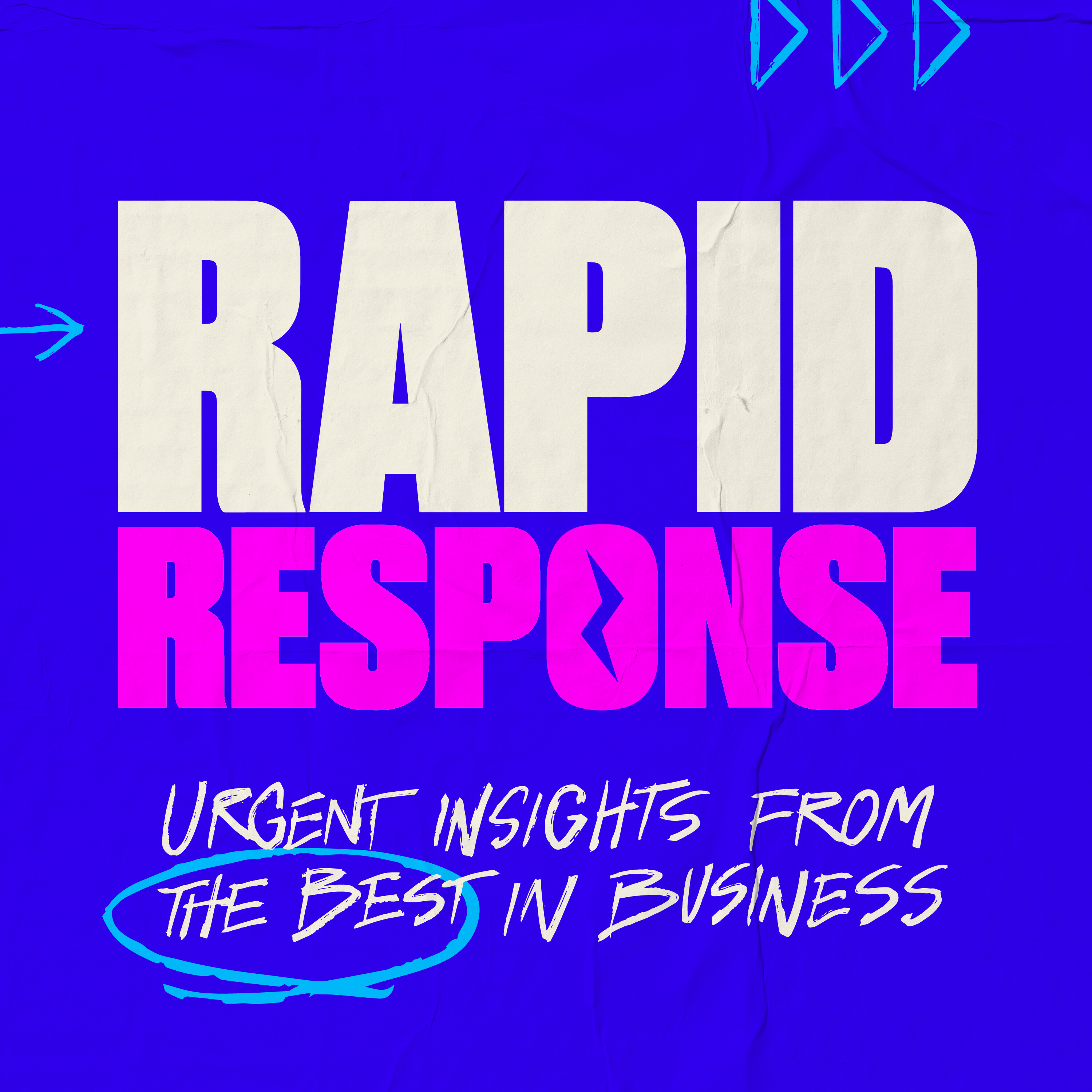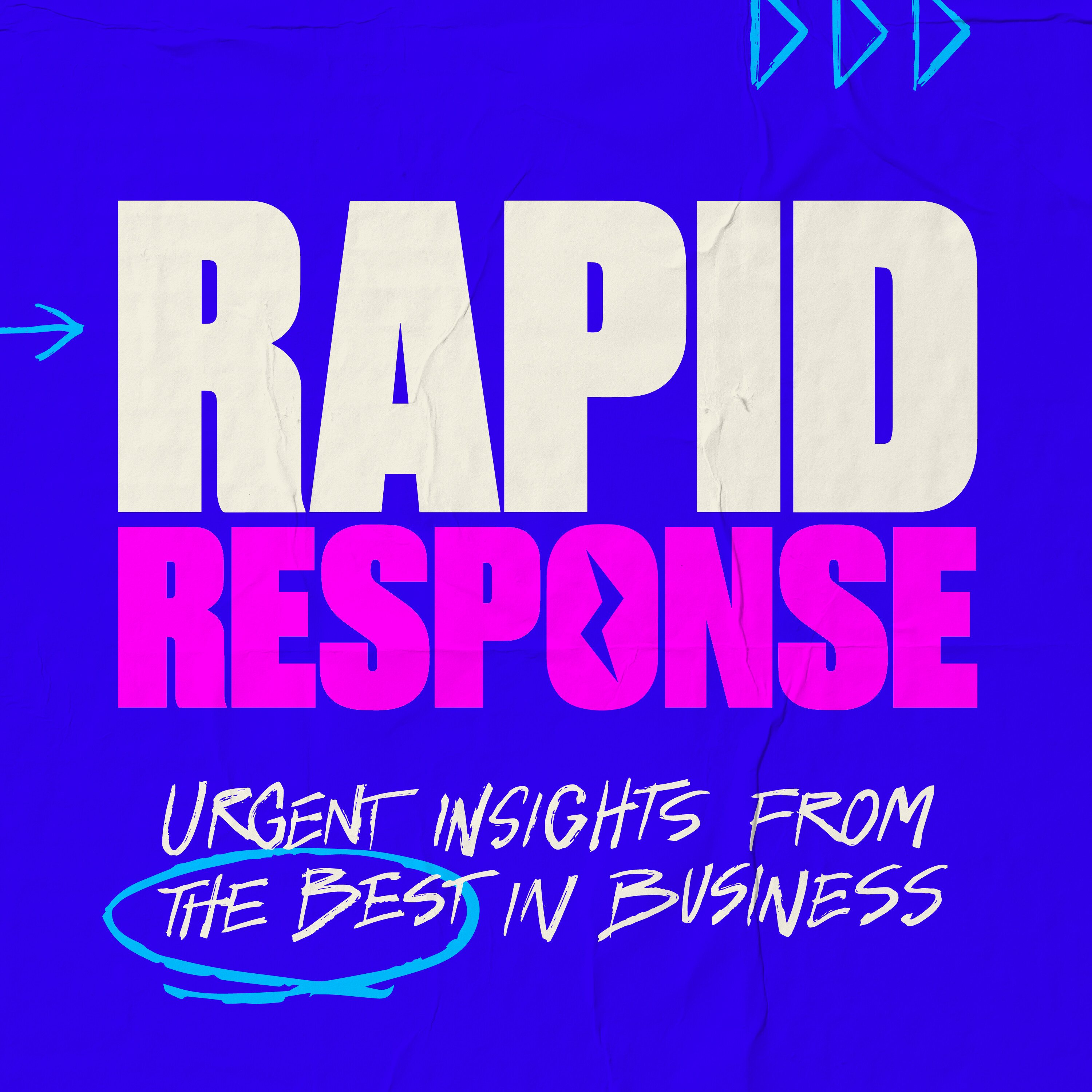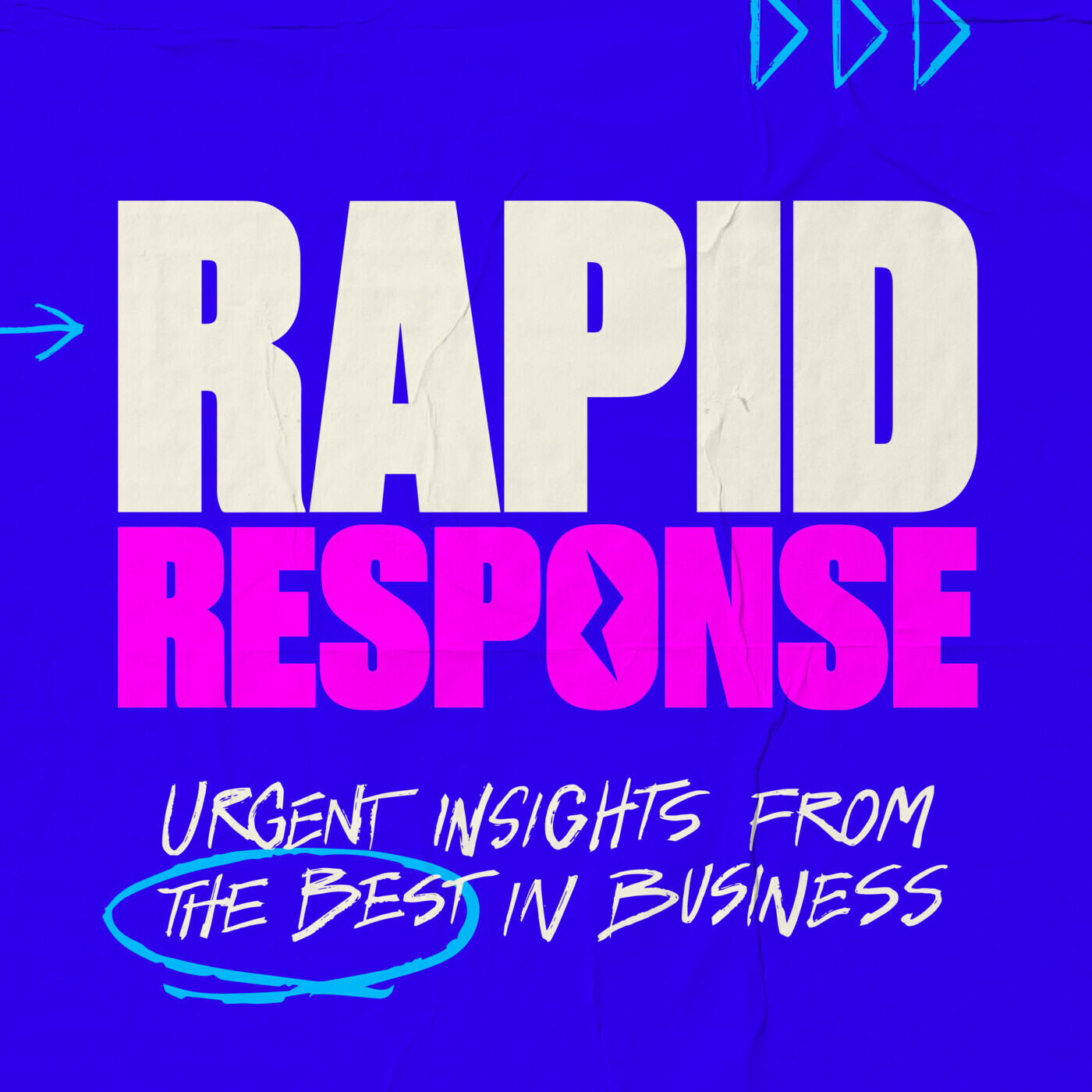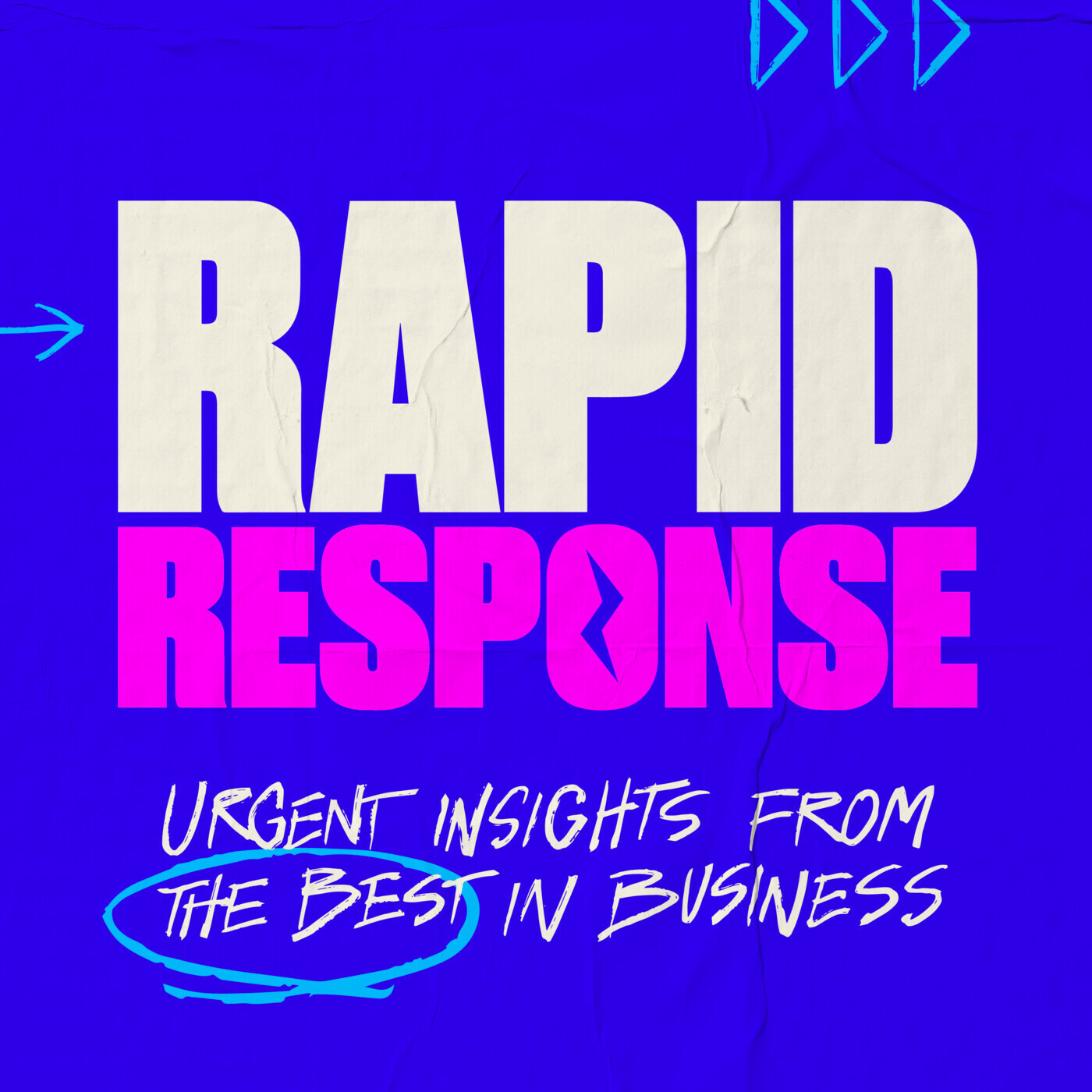
January 28, 2025 • 26min
Reid Hoffman on AI ‘Superagency’
Masters of Scale
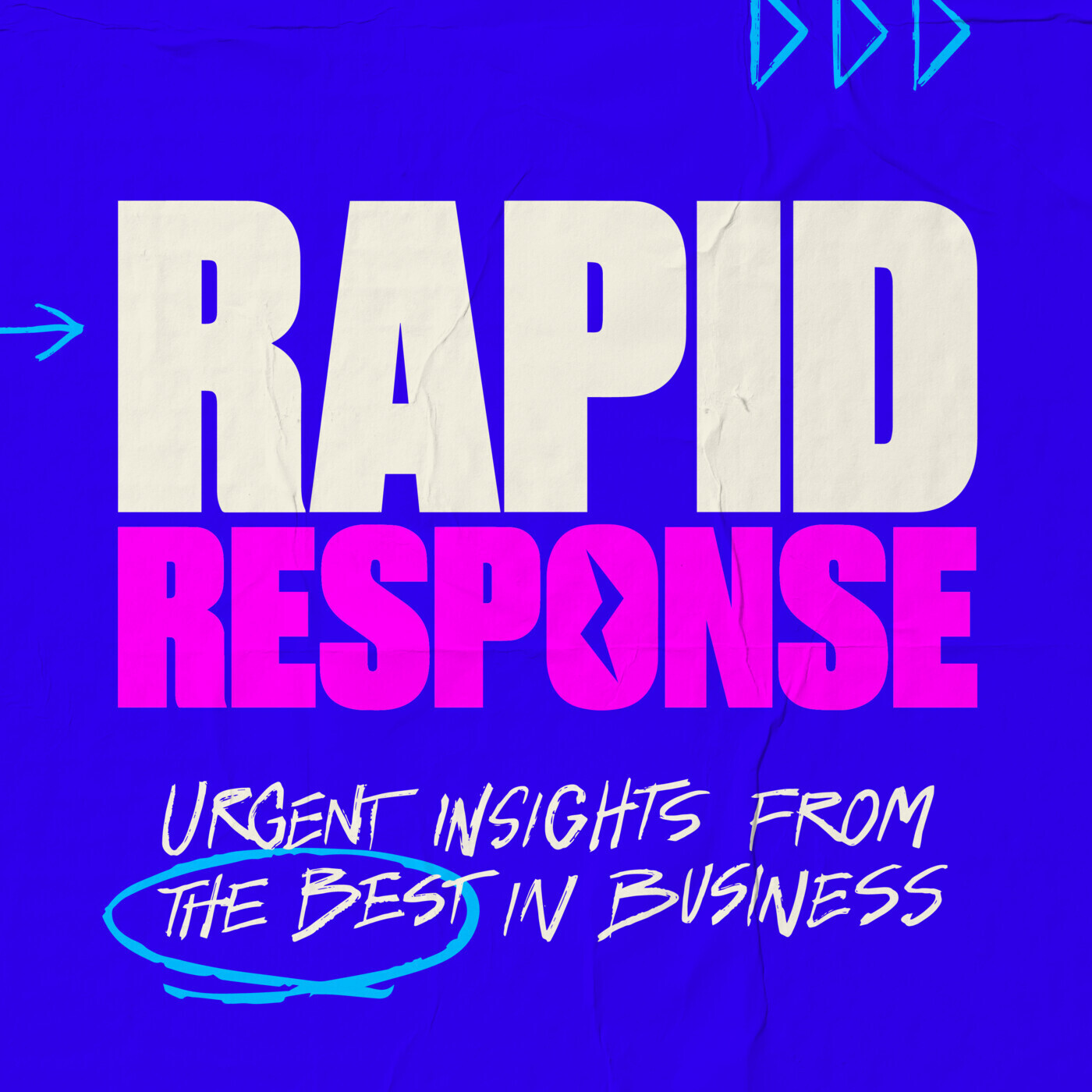
Key Takeaways
- Super Agency refers to when AI gives many people "superpowers" that enhance their capabilities and agency (ability to make choices and affect their environment)
- AI should augment human capabilities rather than simply replace them - like having "a radiologist with AI" rather than just AI alone
- Iterative deployment is crucial - we need to actively engage with and shape AI technologies rather than just resist them
- AI literacy will become as essential as computer literacy is today - professionals will need to learn to work effectively with AI tools
- Key concerns include job displacement, security risks from bad actors, and need for appropriate governance frameworks
Introduction
Reid Hoffman, co-founder of LinkedIn and founding host of Masters of Scale, discusses his new book "Super Agency" about the fast-evolving AI era. As both a tech founder and Microsoft board member, Hoffman provides an optimistic but practical perspective on how AI will transform society and work, while acknowledging legitimate concerns that need to be addressed.
Topics Discussed
Defining Agency and Super Agency (02:39)
Hoffman explains the core concepts that frame his vision of AI's impact:
- Agency is our ability to express ourselves, make choices, and shape our environment
- Super Agency emerges when many people gain AI "superpowers" that enhance their capabilities
- Historical parallels include how cars and phones gave people "superpowers" for mobility and connectivity
Addressing AI Fears and Skepticism (08:09)
Hoffman discusses his approach to engaging AI skeptics:
- Goal is to encourage "AI curiosity" rather than just dismiss fears
- Benefits come from collective adoption - like how everyone benefits from doctors using AI assistance
- "Would you rather have a radiologist read your X-ray scan or would you rather have a radiologist with an AI read your X-ray scan? The answer is radiologist with AI every day of the week"
Job Impact and Professional Evolution (12:17)
Discussion of how AI will affect employment and professional skills:
- Jobs will require AI literacy just as they now require computer literacy
- Focus should be on augmentation rather than pure replacement
- New opportunities will emerge for more creative, human-centric work
- "There's a lot of jobs where we have human beings trying to act like robots, like customer service following the script - robots will do that better"
Managing the Technology Transition (13:41)
Hoffman outlines his perspective on handling technological change:
- Identifies as a "bloomer" not "zoomer" - optimistic but realistic about challenges
- Historical precedent of difficult transitions with major technologies
- Need for intentional steering to handle transition better than past technological revolutions
- "We are entering into the cognitive industrial revolution...transitions can be painful. Let's do these ones better."
Future Vision of AI-Enhanced Work (21:58)
Description of how AI will integrate into daily professional life:
- AI copilots will become standard for professional interactions
- Automated note-taking and suggestions during meetings
- Context-dependent usage - more formal for work vs casual social situations
Key Risks and Concerns (23:05)
Discussion of primary challenges and risks:
- Bad actor exploitation - rogue states, terrorists, criminals gaining AI capabilities
- Need for international cooperation on AI governance
- Importance of diverse perspectives beyond just technologists
- "AI gives you superpowers, it also gives rogue states superpowers, terrorists superpowers, criminal superpowers"
Policy and Regulation (26:10)
Hoffman's thoughts on government approach to AI:
- Focus on "American Intelligence" - building US capabilities
- Building on CHIPS Act with new regulatory frameworks
- Need for infrastructure including energy and data centers
- "How do we make that American intelligence? Building on the CHIPS act...making a massive shift of regulation for provisioning new energy, provisioning nuclear energy, provisioning data centers"
Business Leadership in Uncertain Times (27:24)
Advice for business leaders navigating current environment:
- Expect increased volatility and uncertainty
- Look for opportunities from potential deregulation
- Maintain protective stance given political division
- "Expect more volatility, expect more crisis, expect more uncertainty"
Conclusion
Reid Hoffman presents an optimistic but pragmatic vision for AI's impact on society through the lens of "super agency" - the enhancement of human capabilities through AI tools. While acknowledging legitimate concerns and risks, he emphasizes the importance of active engagement with AI technologies to shape their development and implementation. Success will require intentional effort to manage the transition better than previous technological revolutions, including appropriate governance frameworks and focus on augmenting rather than simply replacing human capabilities. Business leaders need to prepare for increased volatility while looking for opportunities in this transformative period.

